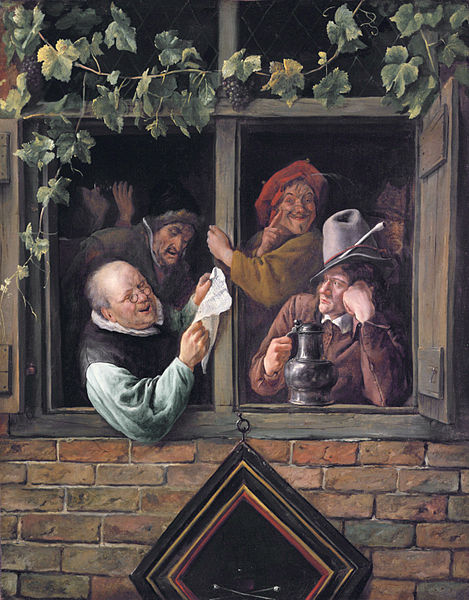

 |
Director's Notes:
In the Middle Ages in the Netherlands, an interesting theatrical phenomenon took place. Groups of urban businessmen and artisans formed fraternal organizations called "Chambers of Rhetoric" to write, stage, and perform works of literature.
Each year, the various chambers of a city would gather for a contest called the landjuweel. Although performances varied, a typical presentation was as follows: Each society devised a triumphal entry procession and a procession to church, exhibited a special emblematic blazon, and showed an ingenious "poetical point," in which various objects and emblems were arranged, like a charade, to illustrate a moral or quotation. The chambers competed to exhibit in allegorical form the best answer to a philosophical question such as the following:
"What was the greatest miracle which God wrought for the saving of mankind?" (Antwerp, 1496)
"In what should a dying man put his faith?" (Ghent, 1531)
-The Chambers of Rhetoric are discussed in detail here.-
The most famous Redijker play is "Everyman". In this play, a character representing wayward and sinful mankind -- called "Everyman" is called to judgement. Other characters representing Fellowship, Kindred, Good Deeds, and Knowledge desert him along the way. Virtue leads him to Confession and Absolution before he finally dies.
The play that our production is based on, "The Voluptuous Man" (voluptuous meaning indulging in luxury, pleasure, and sensuous enjoyment) is a farcical version of "Everyman." Our performance is an updating of the original 1551 script created collaboratively to reflect our views of modern virtue and vice.